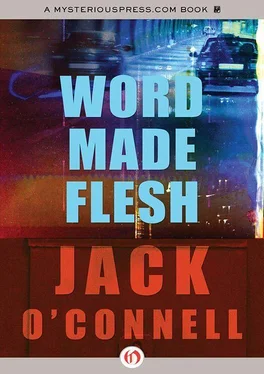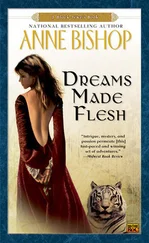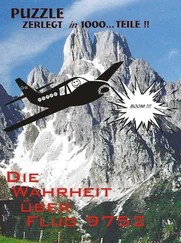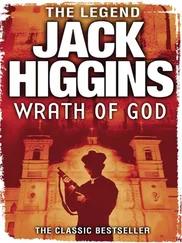“That’s what everyone says about Hermann,” Gilrein nods, “that sentimental old bastard. I’ll bet he loves a parade, too.”
“Mr. Gilrein, are all the taxi-boys this masochistic?”
“Trust your instincts, Gustav. They’ll serve you well.”
Weltsch takes a roll of mints from the inside pocket of his suit jacket, peels one free and pops it in his mouth, then turns and offers the roll to Gilrein, who declines.
“My instinct,” Weltsch says, “tells me to give you what you want and be rid of you.”
“You’re a good businessman. Time is money.”
Weltsch hunches forward with his elbows on the table and lets his back molars splinter his candy with an unsettling cracking noise.
“The Family,” he says, as if there were anyone left beyond himself and his boss, “has virtually nothing to do with Kroger. He falls under our jurisdiction by fault of genetics and geography. Hermann can’t stand the toad. We’ve always felt that sooner or later he’d begin to imagine he could oversee the Bohemian Wing. It’s absurd, of course.”
“Wouldn’t last a week,” Gilrein affirms.
“A week?” Weltsch raises his eyebrows and gestures out at the cafeteria. “The man is a little dilettante. Can you even imagine him taking his supper in here?”
Gilrein smiles and says, “I’ve got to be honest with you, Gustav. You’re sitting right here in front of me and I’ve got trouble imagining you in this place.”
Weltsch takes it as a compliment and continues.
“A year ago Kroger began making small comments about his licensing costs. He runs several franchises in the Wing. You must be familiar with his publishing concern—”
“I’ve been to the home office,” Gilrein interrupts.
Weltsch grimaces politely.
“Kroger’s yearning for more control began to manifest itself last year. Hermann thought it best to nip the problem in the bud. We’d already decided on a contractor.”
“That’s when the family Kinsky had their first big setback.”
Weltsch nods.
“Jakob, the son, he left the nest and cashed in his stock options on the way out the door. And Felix, the nephew, who was so good on the street …”
He breaks off and Gilrein says, “You know the rumor has been that the son whacked the nephew.”
Gustav meets his eyes and in a low and suddenly unlawyerly voice, he says, “Rumors are vicious things.”
Gilrein drops the subject and steers back to Kroger.
“So Hermann postponed the job on August?”
“It’s been a very unstable time. Perhaps more trying than Hermann would like to admit. The Roaches followed Jakob off into the Canal Zone. People are watching and waiting to see how we rebound. We didn’t think it was the most appropriate moment. Mr. Kroger’s time will come again.”
“No doubt,” Gilrein says. “But who is Hermann using for street muscle these days?”
Gustav stares at him, expressionless, then finally lets a small smile break at the left side of his lips.
“You are a character, Mr. Gilrein.”
“I am?”
“Is this your old friends’ way of renegotiating their contract?”
“My old—”
“Because, let me advise you here and now, we won’t discuss a revision. Your Mr. Oster agreed to a flat monthly fee and he’ll abide by that agreement.”
“Oster?” Gilrein says. “Kinsky is using the Magicians for his street crew?”
“You run back to your police friends and tell them we won’t even discuss it until their term expires. Tell them their behavior is pathetic and we expected more from professionals.”
“Weltsch, I’m telling you, I had no idea.”
The distant sound of a toilet flushing reverberates through the walls of the cafeteria and Attorney Weltsch begins to gather his financial journals together into a neat pile.
“But I just—” Gilrein begins, and Weltsch motions him out of the booth.
“Depending on how things went in there,” gesturing now toward the men’s room, “your life could be in genuine danger if you’re still here when Hermann returns.”
The names you used to call me
Sound so strange and they fill me with fear
But will we ever know if this difference is born
On your tongue or perhaps in my ear …
It’s “What Is and Isn’t Said,” a live version off the One Night in Wiesbaden album. The tune was done with a string section backing and Gilrein finds it greatly inferior to Imogene’s original a cappella rendition, so he asks the driver to turn off the radio and tries to stop wondering which interpretation Ceil was partial to, tries instead to focus on the more pertinent question at hand — why the hell two Bohemian gangsters might be vying to ice one insignificant ex — bunko cop? He relays the final directions to Wormland through the safety partition. He knows he should be humiliated, one of the last of the independent hacks paying a corporate grunt for a ride home, but all he feels is tired and jangled, certain only of the fact that it will probably be a good idea to bring the gun into bed with him tonight. The smart way to run this mess down is probably to go back to the beginning and start with Leo Tani, to find out what kind of book he was moving and who it belonged to and who has been bidding on it. But the best person to help him answer those questions would be Wylie Brown. And just a few hours ago, she handed him over to Kroger.
Or did she? It’s possible, if unlikely, that she had no idea Kroger’s animals were coming for him. But in Gilrein’s experience, cynicism comes faster and easier than faith and though he doesn’t actively want to believe that Wylie set him up, he can’t shake the familiar sensation of betrayal that’s resting in the hollow of his stomach like a snake with a skin made of diamonds.
So he tries sticking with the few thin facts that he’s got and their corollary suppositions.
Leo Tani was whacked because of the sale he brokered at Gompers Station. According to Kroger, the item sold was a book of some sort, which Kroger says belongs to him. Kroger is being dogged by Oster and the Magicians, who are working on contract for Hermann Kinsky. And all of them seem to think that Tani passed this book on to his favorite chauffeur. With both Kroger and Kinsky involved, it seems at least possible that the book in question may either originate in or have some connection to their shared native city, Maisel, the thousand-year capital of Old Bohemia.
Is Gilrein imagining it or did Ceil really mention wanting to visit Maisel some day? Was this an actual statement of his late wife or has he begun to insert her presence into every aspect of his post-Ceil existence?
He refuses to pick at the question. He’s too exhausted and maybe too apprehensive about the final answer, the fact that too much of himself died along with Ceil, that the balance of a lifetime this choked and numbed from unrelieved grief isn’t a lifetime at all but rather a limbo, a void, a holding cell of paralife, ghost life, where every sense is muted to the point of absurd triviality and ideas of possibility and faith and change are inconceivable.
The black cab’s headlights play over the sprawl of the farmhouse and the barn. Gilrein pays the driver and climbs outside, but instead of heading for the loft, he goes to the main house, unlocks the front door and makes his way down into the cellar. He grabs the flashlight from the shelf at the bottom of the stairs and follows its beam toward the rear of the house, and when the furnace cycles on without warning, he flinches so badly that he almost drops to the floor.
Some field mice run through the shaft of his light as it plays on the ground. When he comes to the wooden locker, he takes his keys from his jacket, finds the smallest one, and opens the padlock. He rests on one knee and unbolts the manhole cover, pulls the plate loose and sets it to the side, then climbs down into Subterranea.
Читать дальше












